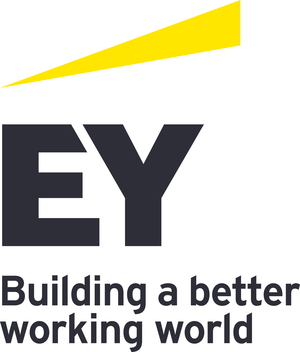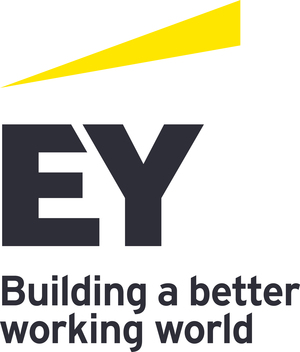
Private equity CFOs focus on developing talent and enabling digital technology to stay competitive
- More than 40% of private equity (PE) CFOs see portfolio analytics and management reporting as their top technology investments over the next two years
- Approximately 50% of PE CFOs view the right cybersecurity and automating processes as "must haves" in their operating models
- 92% of CFOs expect Millennials to stay less than five years and 51% of PE CFOs say retaining their talent is integral to their future success
NEW YORK, Jan. 18, 2017 /PRNewswire/ -- Private equity chief financial officers (CFOs) are now looking to mature their operating model after focusing on implementing baseline technologies and hiring talent over the last few years to address regulation and investor demands. These raw materials have enabled CFOs to design a blueprint to build a better operating model in the future, according to EY's 2017 global private equity CFO survey, Have yesterday's challenges provided a foundation for tomorrow's success?
The fourth annual survey of 103 private equity funds, conducted in collaboration with Private Equity International (PEI), finds that private equity firms' top operating objectives over the next two years are automating processes (45%), developing personnel (53%) and improving management reporting (55%). Similarly, 51% of private equity (PE) firms believe retaining talent is the top issue required to remain competitive in the future.
Scott Zimmerman, EY Americas Private Equity Assurance Leader, said:
"Private equity firms' CFOs realize they have to build teams, retain talent and capitalize on rapidly developing technology to be competitive in the foreseeable future. People will always be most important, but today, it is also about optimizing operations through understanding the true impact of their digital agenda."
Arleen Buckley, PEI Director Event Portfolio Development - Americas, added: "There is no question the private equity business is becoming more complex, and so CFOs are voicing the concerns of a mature industry that is ripe for disruption. They're reviewing lessons learned from the past few years, identifying their main objectives and aiming to bring more strategic value to key stakeholders."
Identifying top priorities to deal with operational complexity
Forward-looking CFOs realize that a strategic operational focus is required to remain competitive. They contend that regulation (64%), data management (50%) and investor information requests (49%) add to operational complexity. As a result, they are focusing their objectives on strategic functions that can help implement new processes, increase returns, reduce expenses and produce information more accurately.
Meeting these objectives requires a focus on more strategic initiatives. CFOs clearly want their teams to focus less on tactical functions such as fund accounting and regulatory issues, and more on value-adding activities such as portfolio analysis, tax and investor relations.
Outsourcing continues to be an option to alleviate internal pressures and concentrate more on creating better returns for investors. While CFOs understand the benefits of outsourcing tactical functions, they are also concerned about some of the perceived challenges of outsourcing to third-party service providers, such as substandard service level and quality (79%) and inability to manage complexity (68%).
Investment in data technology is a priority
The CFOs surveyed are aware of the benefits that technology allows when faced with more complex structures and products, cybersecurity issues and investor demand for lower fees. Indeed, 90% of CFOs said that operational efficiency drives their need to invest in technology.
However, although 81% of CFOs feel that investing in data can help them replace spreadsheets, many believe the cost and complexity required for customization is too high, and they opt instead to continue using spreadsheets rather than invest in new systems. In fact, 79% of CFOs have not yet replaced spreadsheets because they are less costly and complex, and 58% have not done so because they feel that spreadsheets offer better flexibility.
Overall, CFOs still believe technology is the best way to mature operations. They are focusing their future technology investments on management reporting (42%) and portfolio analytics (41%) solutions in order to gain a competitive advantage around building a better portfolio and increasing returns.
CFOs realize they need to engage more with employees to retain talent
It's important for PE firm CFOs to engage more effectively with their talent so they choose to stay for an extended period of time. However, CFOs are keenly aware of the unique needs of the Millennial generation – more than 90% do not expect them to stay beyond five years. As a result, CFOs have switched their focus to retaining talent, bringing more professional growth opportunities (99%), technical skill development (83%) and transparent communication (61%).
Firms are also cognizant that the current employee base is looking for more than just traditional benefits and compensation. CFOs are responding in kind with initiatives such as paid parental leave (68%), working remotely (63%) and flexible work hours (48%).
Cybersecurity is the number one regulatory priority
Cybersecurity (72%) has overtaken fees and expense allocation (66%) as the top priority of PE firms' compliance agendas today.
CFOs know that the current environment poses several digital risks, both to investment managers and portfolio companies. They noted that the most prevalent risk to investment managers is leaking confidential information (78%), while the biggest risk to portfolio companies is compromised cash payments (64%).
Some steps they will take to fight these threats are: adding a formal vendor management program (57%) sharing cyber assessments across their portfolio companies (39%) and sharing the purchasing or procurement of cybersecurity products or services across their portfolio companies (28%). However, firms are attempting to address cybersecurity in a cost-efficient way across their portfolio companies to reduce unnecessary overheads.
Read the complete survey at ey.com/pesurvey.
Notes to Editors
About EY
EY is a global leader in assurance, tax, transaction and advisory services. The insights and quality services we deliver help build trust and confidence in the capital markets and in economies the world over. We develop outstanding leaders who team to deliver on our promises to all of our stakeholders. In so doing, we play a critical role in building a better working world for our people, for our clients and for our communities.
EY refers to the global organization, and may refer to one or more, of the member firms of Ernst & Young Global Limited, each of which is a separate legal entity. Ernst & Young Global Limited, a UK company limited by guarantee, does not provide services to clients. For more information about our organization, please visit ey.com.
This news release has been issued by EYGM Limited, a member of the global EY organization that also does not provide any services to clients.
About Private Equity International
Private Equity International is the only global publication with a primary focus on the relationship between investors and fund managers in private equity: the LP-GP nexus.
Launched in December 2001, the title covers the people, the funds, the capital providers and the financial trends shaping the industry with an integrated team of specialist journalists and researchers in London, Hong Kong and New York City. As demand for private equity in institutional portfolios continues to grow around the world, so we aim to deliver an ever more comprehensive offering of hard news, proprietary data, authoritative analysis and context around why this is happening, and where and how investors can find value in the asset class.
We cover investor allocation strategies into all segments of private equity, and we talk to the general partners, limited partners, advisors, lawyers, regulators and financiers who determine how capital flows into and out of the class. From this we create a carefully judged blend of digital news, commentary and analysis of all the key trends and events that shape private equity, as well as a proprietary database of funds, fund managers and their investors as yet another integral part of our digital offering.
About the survey
"Have yesterday's challenges provided a foundation for tomorrow's success?" is EY's fourth annual global private equity survey in collaboration with PEI. Respondents included 103 private equity fund CFOs. PEI conducted the research between August and December 2016, collecting information through telephone interviews and an online survey.
SOURCE EY






Share this article